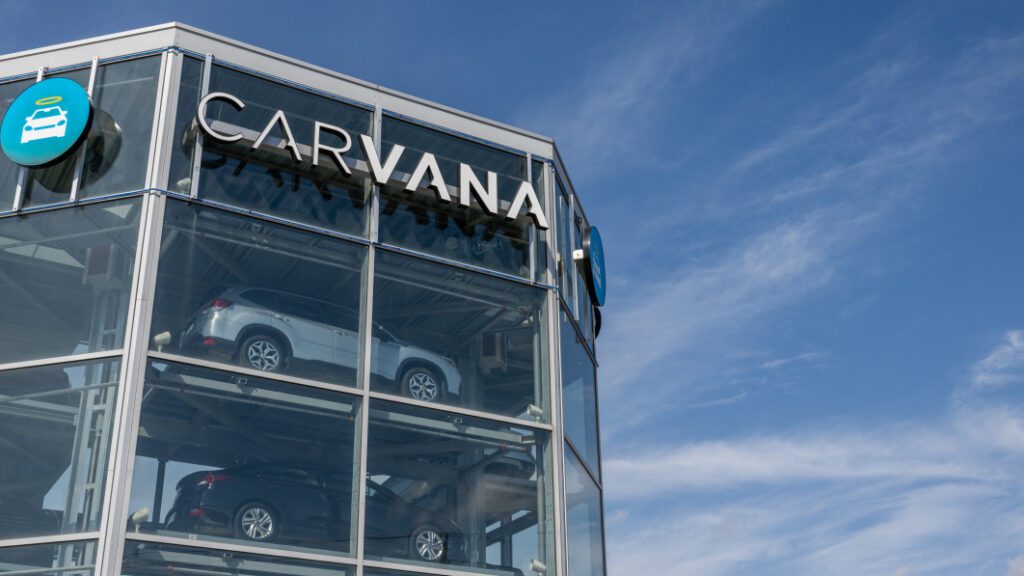Carvana debt bills come due with business ‘firmly in retreat’

Carvana Co. is staring down rising interest payments each of the next three months with vehicle sales and earnings moving in the wrong direction.
The $7.61-a-share loss the used-car retailer registered last quarter was more than triple the deficit analysts were expecting. Coming off its lowest retail unit sales in two years, Carvana forecast another drop in the first three months of this year, as it shrinks inventory and slashes marketing spending.
After making an ill-timed acquisition just as sales and used-car prices took a turn, the once rapidly growing retailer is “firmly in retreat mode,” Kevin Tynan, a Bloomberg Intelligence auto analyst, said in a note. Carvana shares fell as much as 4.5% to $9.63 before the start of regular trading.
The quarterly loss reported after the close Thursday caps a disastrous year in which Carvana’s stock plummeted 98%, erasing almost almost $37 billion of market capitalization. While the shares have more than doubled this year, Bloomberg Intelligence credit analyst Joel Levington cautioned ahead of the earnings that the move mirrored what occurred at Hertz Global Holdings Inc. before the car-rental company filed for bankruptcy in 2020.
Carvana’s biggest problem is its debt, which stands at more than $8 billion with $2.4 billion in cash burn projected over the next two years, according to Levington. “They need to restructure their balance sheet,” he said in a phone interview. “They probably need to shave off 85% of their debt, otherwise they will be a vulnerable company for years.”
Some of Carvana’s largest creditors have banded together in an effort to secure more favorable terms ahead of a potential restructuring. Chairman and Chief Executive Officer Ernie Garcia III told analysts on a conference call that plans to cut costs and eventually grow again has positioned the company to potentially avoid having to raise money or rework its debt.
“We’ve got a real shot at not requiring additional capital,” Garcia said, citing the company’s real estate portfolio as one potential source of funds. “If we’re wrong, then we have lots of ways to go out and get additional capital.”
Carvana finished the year with $434 million in cash and equivalents, up from $316 million at the end of the third quarter.
In a letter to shareholders, Garcia called 2022 a “very difficult year.” Sales fell 23% in the fourth quarter to about 87,000 vehicles. Gross profit per unit plunged by more than half.
The CEO said he expects gross profit per unit to rebound back to previous levels exceeding $4,000 per vehicle, and that Carvana wants to grow into new markets such as last-mile delivery and repair and reconditioning of cars.
Carvana’s current strategy to conserve cash by reducing inventory “does not give us confidence in the long-term viability of the business model,” John Colantuoni, a Jefferies analyst with a hold rating on the shares, said in a note. “We anticipate views around a potential restructuring process will be the primary determinant of the stock price, with fundamentals as a distant secondary factor.”
Related video:



